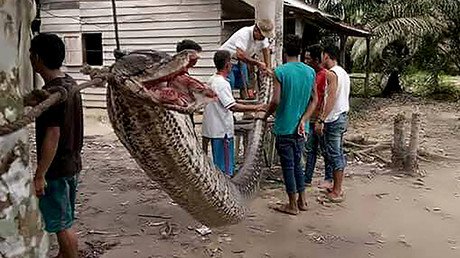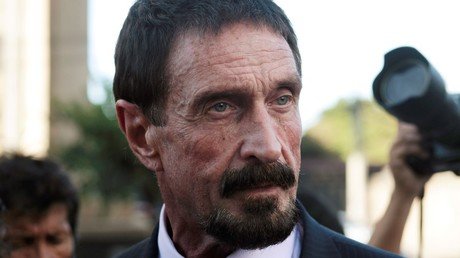Kashmir crisis: Tempers run high, but India & Pakistan will avoid all-out war – analysts
Despite growing tensions over Kashmir and cross-border skirmishes, the two nuclear-armed rivals don’t want to take the conflict to a new stage, choosing instead to keep a safe distance from the point of no return,analysts told RT.
The simmering conflict between India and Pakistan returned to front-page news in late February when India launched air strikes on what it claimed was a terrorist training camp located in Pakistan after a deadly attack by a jihadist group, prompting Islamabad to retaliate.
Also on rt.com We don't want war, but we may have no choice, say voices on both sides of India-Pakistan rowBoth countries scrambled jets and sent them into their neighbor’s airspace. India said it hit one Pakistani jet, which fell on their side of the border. An Indian MiG-21 was shot down and its pilot captured, although returned later.
“The [Narendra] Modi government faces a choice: it either de-escalates the conflict… or seeks ways to hit back,” Alexey Kupriyanov, a research fellow at Russia’s IMEMO institute, told RT. The outcome of the conflict may also help Modi win popular support and show strength at home.
For his part, Pakistan’s Prime Minister Imran Khan, who demonstrated “goodwill” and ordered the return of a downed Indian pilot, could go even further. For instance, “the conflict would be over” if he “fires someone in the Inter-Services Intelligence [ISI],” an agency widely believed to have links to Islamist groups, Kupriyanov suggested.
And while Khan might have difficulty going that far, Pakistan “is interested in quitting the conflict right now,” the analyst said.
Modi has recently complained that “the enemy supports terror and acts against India,” and vowed his country “will fight as one and win as one.” However, these words, which may sound incendiary, are not to be taken literally, Gopalaswami Parthasarathy, a former Indian envoy to Pakistan, has said.
India will be fighting “politically and diplomatically,” he stated, noting more and more countries are pledging support for New Delhi’s fight against terrorism. The current tensions are less serious than they might seem, he said, noting that even capturing the Indian pilot was “not a problem at all.”
Also on rt.com Pakistan hands over captured air force pilot to India“We had this before even when I was ambassador in Pakistan. During the [1999] Kargil conflict one of our aircraft was shot down and the pilot was taken prisoner… And after some time the officer was returned and released,” Parthasarathy recalled.
“I don’t worry about it too much because we had conflicts in the past and have always exchanged prisoners,” the retired diplomat stressed.
The Kashmir region is claimed in full by both India and Pakistan since both states gained independence from British Empire in 1947.
Each country controls a section of the territory, separated by one of the most militarized borders in the world, known as the Line of Control, which has seen frequent shelling and several short-term conflicts.
Subscribe to RT newsletter to get stories the mainstream media won’t tell you.














